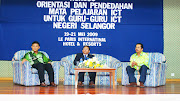
are a great way to enable teamwork in situations where people are not sitting in the same physical office at the same time.
Such teams are used more and more by companies and other organizations to cut travel, relocation, real estate, and other business costs. This is particularly so for businesses that use virtual organizations to build global presence, outsource their operations, or need less common expertise or skills from people who are reluctant to travel or relocate from their home locations.
Virtual teams are governed essentially the by same fundamental principles as traditional teams. Yet, there is one critical difference. This difference is the way the team members communicate. Instead of using the full spectrum and dynamics of in-office face-to-face exchange, they now rely on special communication channels enabled by modern technologies, such as e-mails, faxes, phone calls and teleconferences, virtual meetings, and alike.
Due to more limited communication channels, the success and effectiveness of virtual teams is much more sensitive to the type of project the group works on, what people are selected, and how the team is managed.
Not every type of project is suitable for a virtual organization. One challenging case is projects that rely heavily on sequential or integrated work, as often the case in manufacturing. In particular, when each person’s work depends much on what someone else is doing at the same moment (like in a sports team), there is an ongoing heavy exchange of information in real time, and/or the tasks has to go through a strict sequence of workers within a short time.
Not everyone can perform well in a virtual team environment. The members should be self motivated and able to work independently. They need to be able to keep working effectively without much of external control or structure. The next important quality is strong result-orientation. Unless the person shows clear results, there is nobody around to see how intense his or her work activities are. Another critical factor is communication skills. The team member should be able to communicate clearly, constructively, and positively even through the more limited channels of technology, in spite of the loss of many nonverbal cues of face-to-face communications.
Managers of virtual teams also need to pay much more attentions to maintaining clear goals, performance standards, and communication rules. People have varying assumptions on what to expect from each other. To avoid build-ups of misunderstandings, in a virtual organization it is critical to replace those implicit assumptions with clear rules and protocols that everyone understands and agrees upon, especially for communication.
One of the biggest challenges of virtual teams is building and maintaining trust between the team members. Trust is critical for unblocking communication between members and sustaining motivation of each person involved. The issue of trust needs special attention at any stage of team existence.
By : time-management-guide.com/virtual-team
Thursday, January 28, 2010
Virtual Teams
Posted by Zahri HjRamlan at 6:55 PM
Subscribe to:
Post Comments (Atom)











0 comments:
Post a Comment